Developing critical thinking Normal Worksheets for Ages 3-9
7 filtered results
-
From - To
Unlock your child's potential with our "Developing Critical Thinking" printable worksheets, tailored for ages 3-9. Our engaging activities are designed to stimulate young minds, promoting reasoning, problem-solving, and decision-making skills. Each worksheet challenges kids in a fun, interactive way, combining age-appropriate puzzles and thought-provoking questions. Perfect for home or classroom use, these resources are crafted to nurture early learners and set the foundation for future academic success. Free to download and print, help your child build confidence and critical thinking abilities with Kids Academy's expertly designed materials.
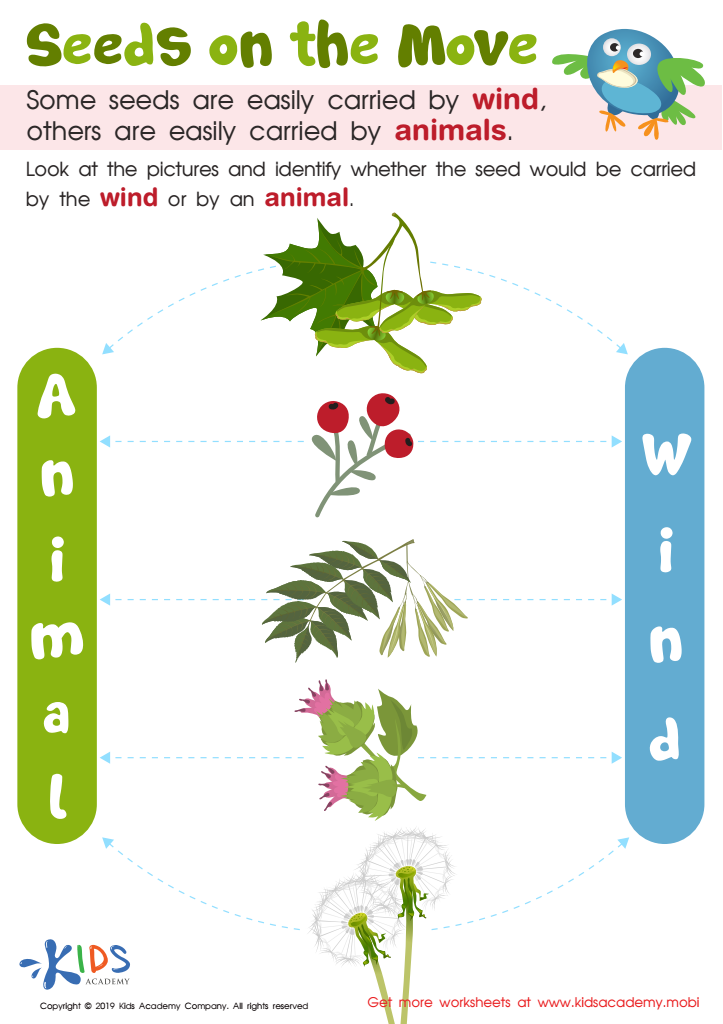

Seeds on the Move Worksheet
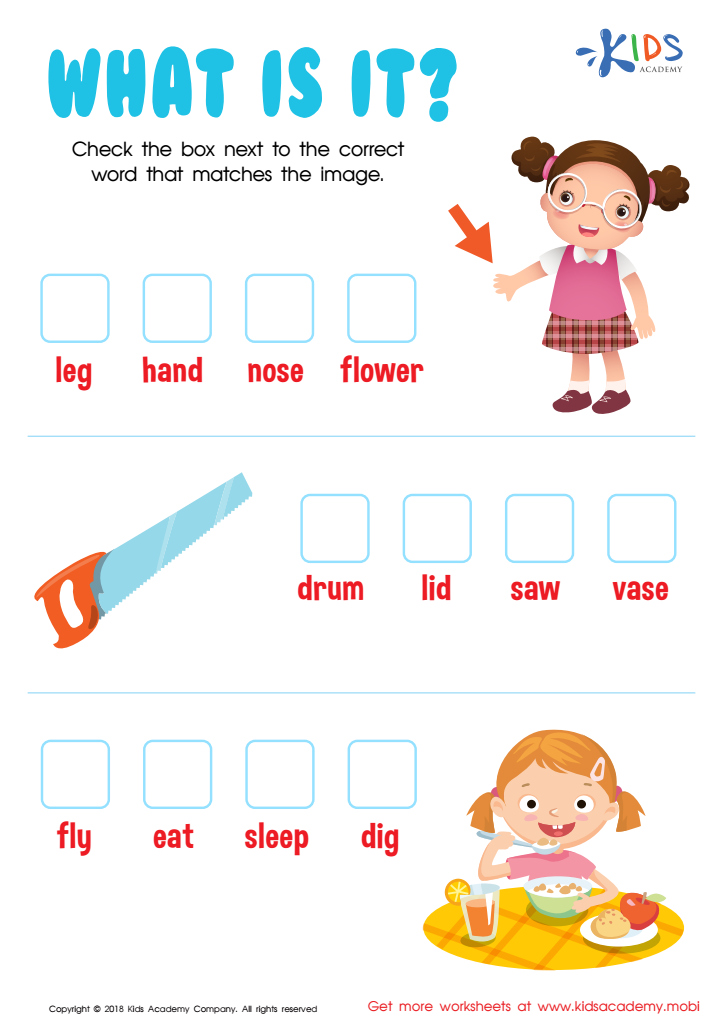

What Is It? Worksheet
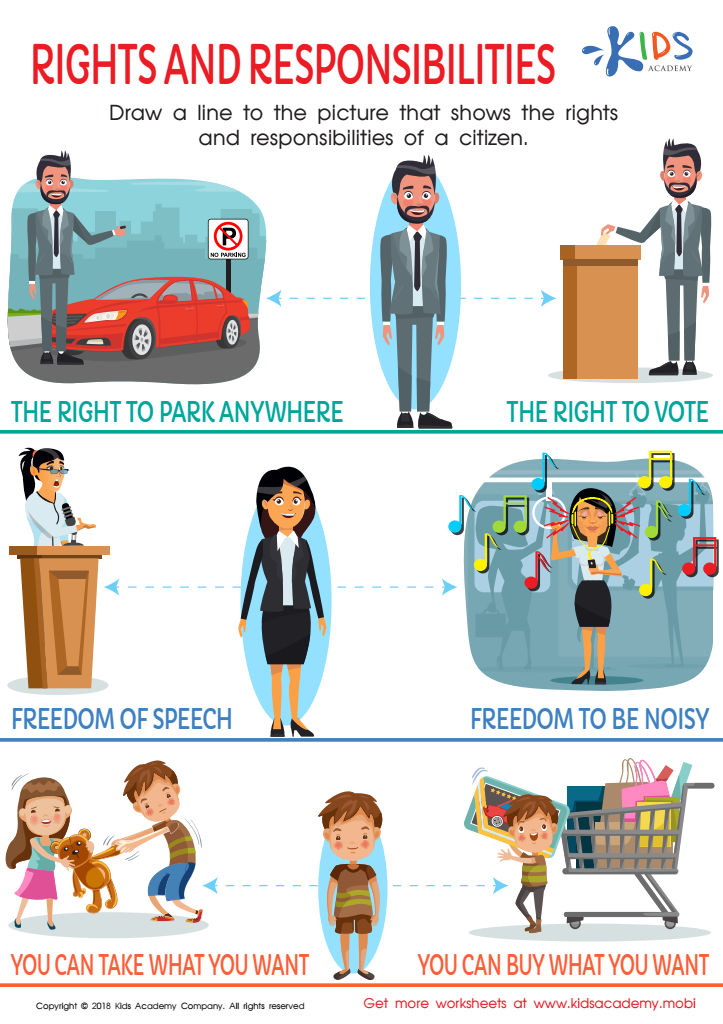

Rights and Responsibilities Worksheet
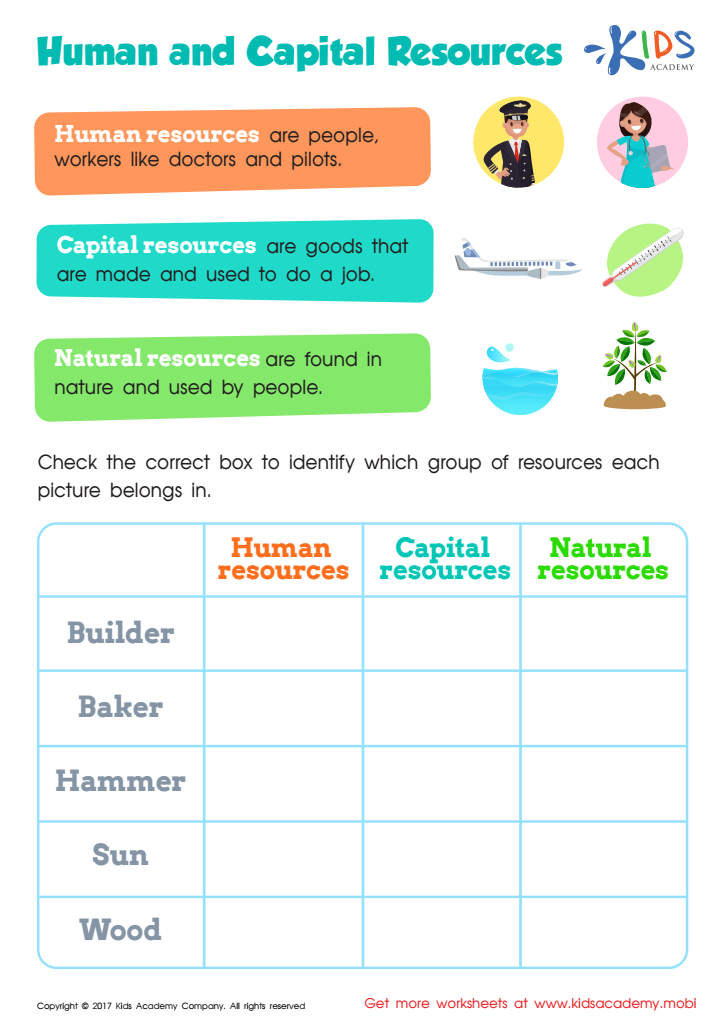

Human and Capital Resources Worksheet
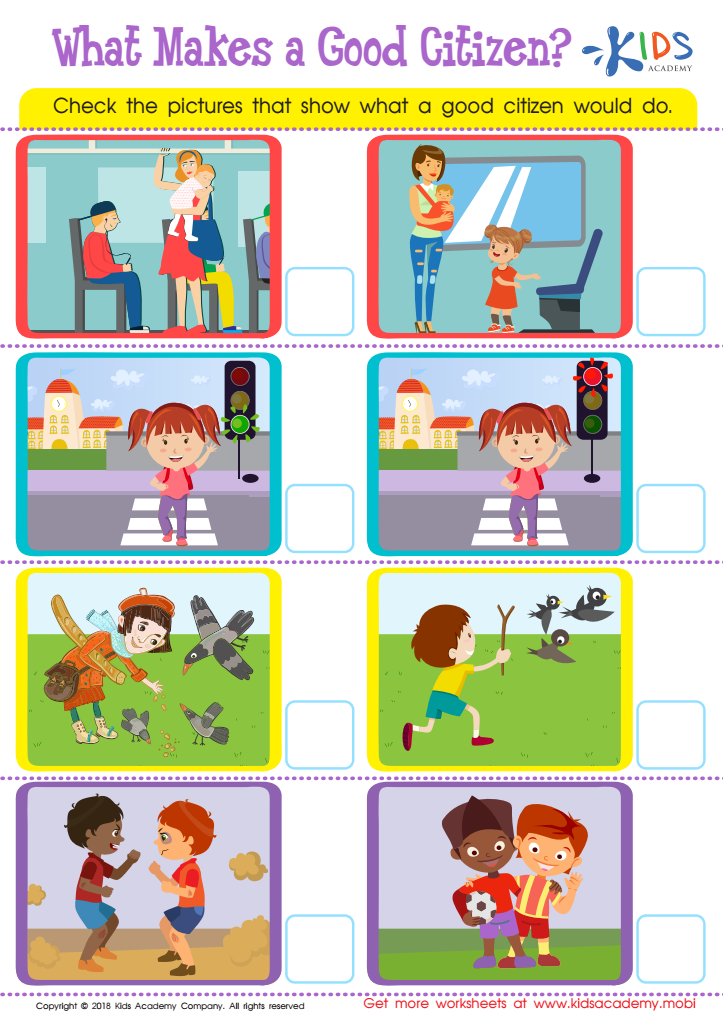

What Makes a Good Citizen? Worksheet
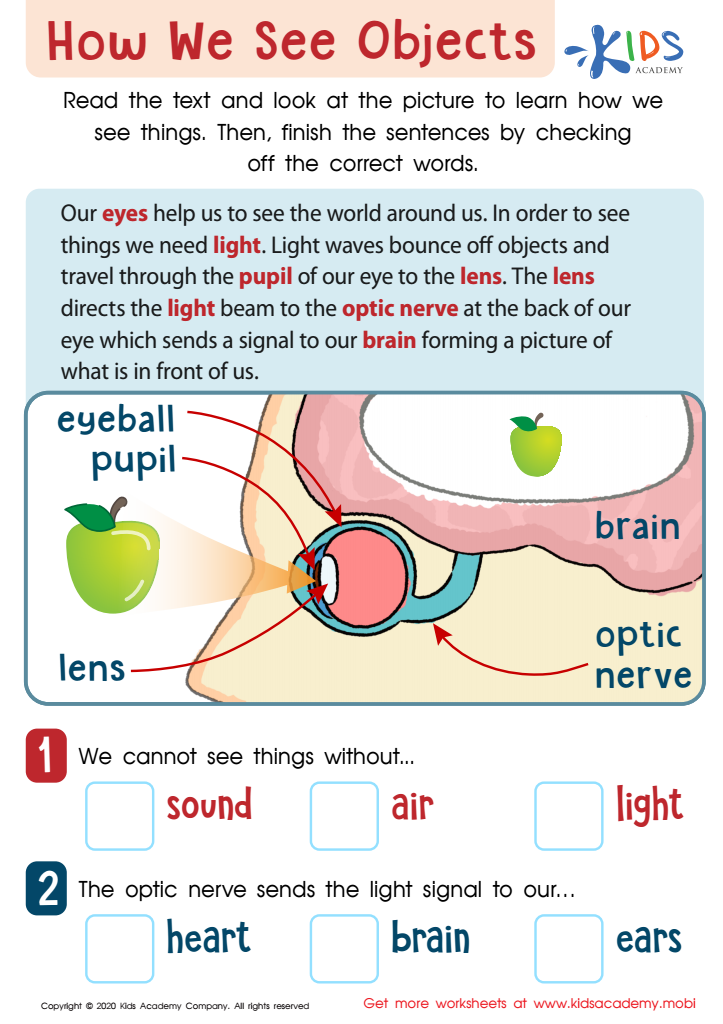

How We See Objects Worksheet
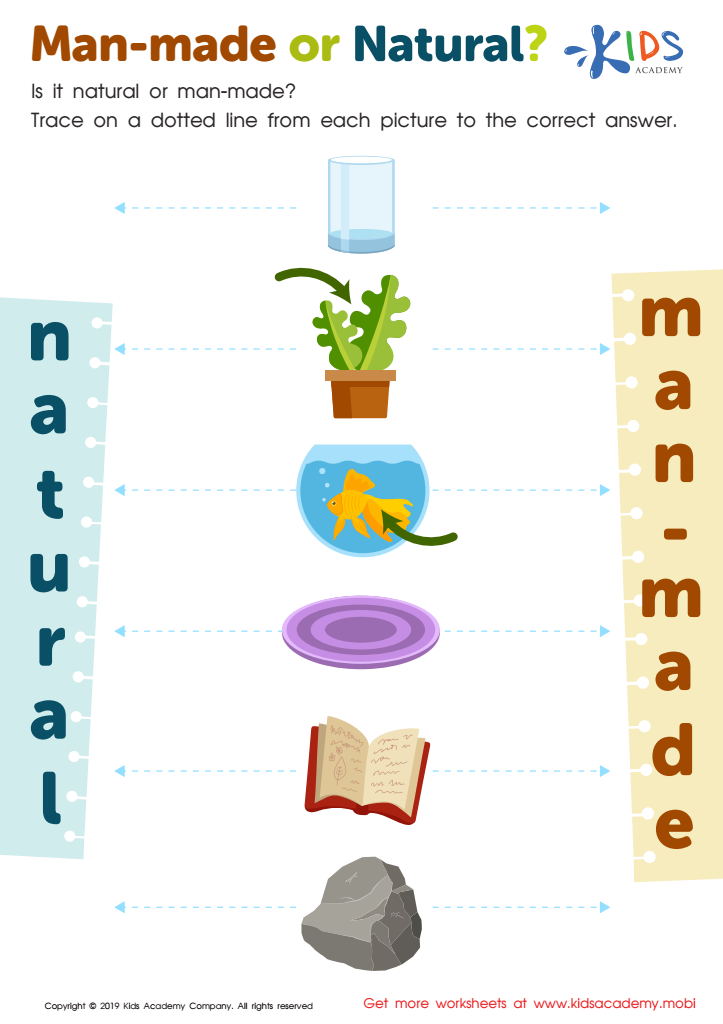

Man-Made or Natural? Worksheet
Developing critical thinking skills in children ages 3-9 is vital for their academic and personal growth. During these formative years, young minds are incredibly receptive and malleable. Encouraging critical thinking helps children learn how to analyze information, solve problems, and make informed decisions independently. In our rapidly evolving world, these skills are crucial for success not just in school, but in life.
For parents, nurturing these abilities means equipping children with tools to understand and navigate the world around them. It improves their curiosity, creativity, and ability to see multiple perspectives, fostering a love of learning that can last a lifetime. Simple activities like asking open-ended questions, playing strategic games, and encouraging them to explain their thinking can be highly effective.
For teachers, promoting critical thinking aligns with educational goals and enhances other areas of learning such as reading comprehension and mathematical reasoning. It makes classroom discussions more dynamic and participatory, encouraging students to engage more deeply with the material and with their peers. This skill set also supports social development by helping children understand and respect differing viewpoints, thus promoting empathy and effective communication.
Ultimately, developing critical thinking in young children is an investment in their future, laying a foundation that will benefit them academically, socially, and personally.
 Assign to My Students
Assign to My Students
















